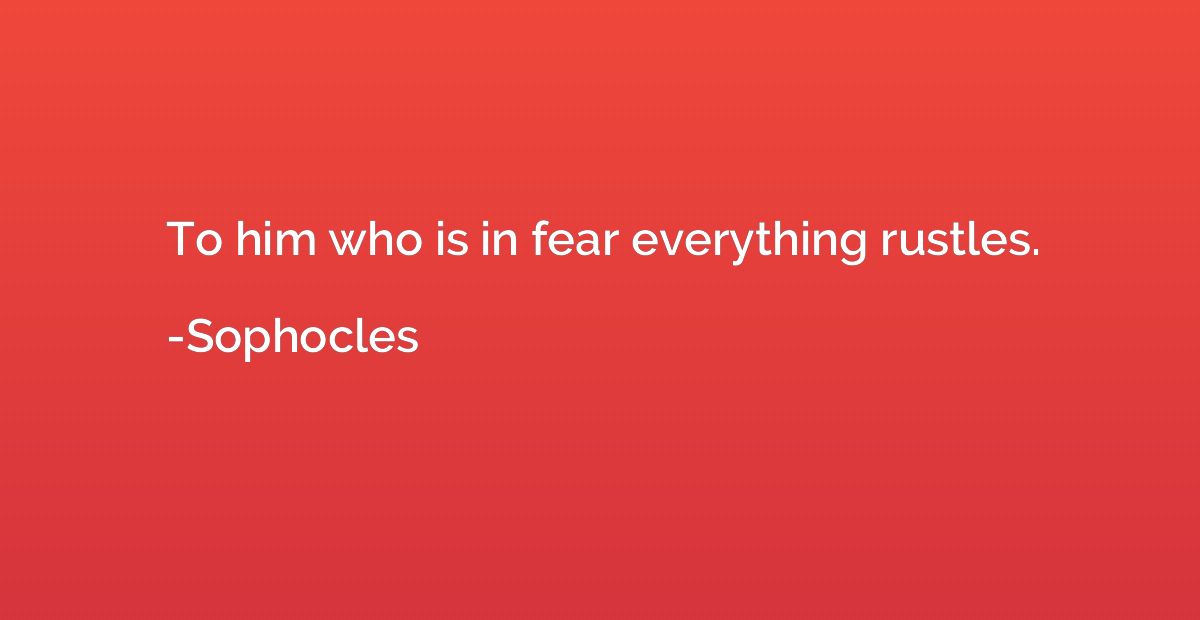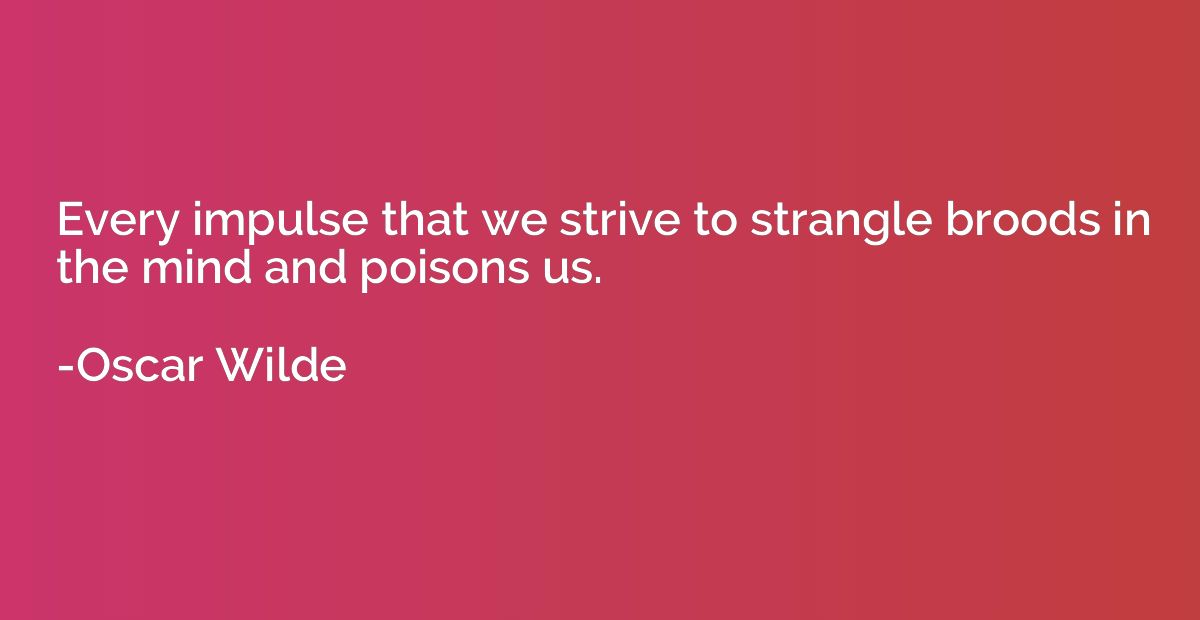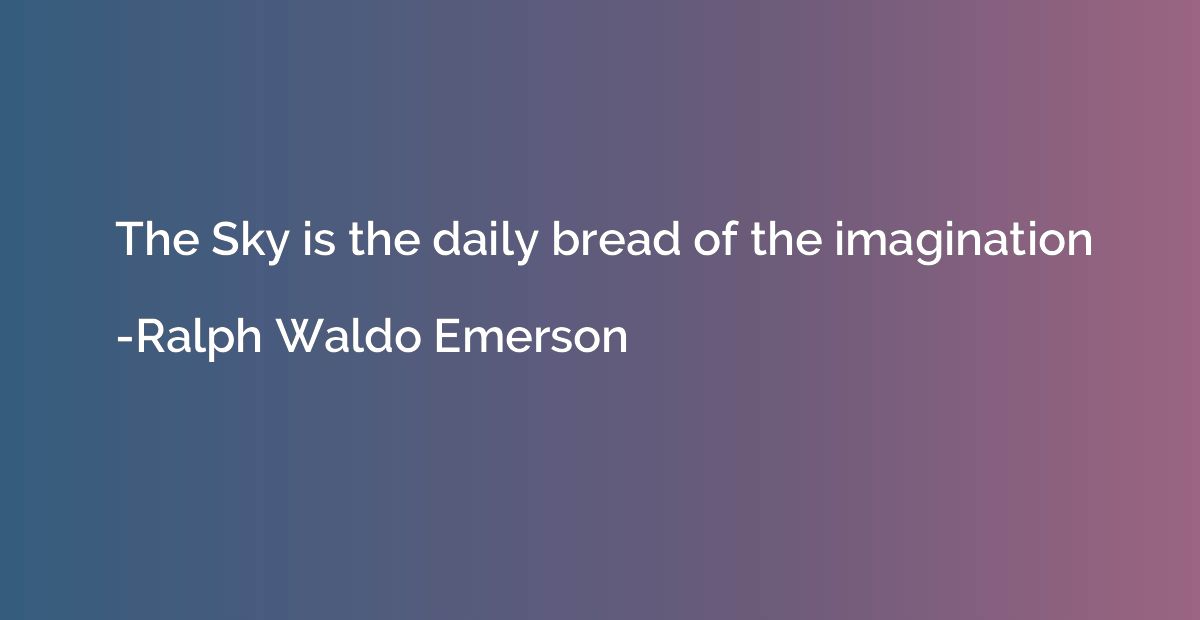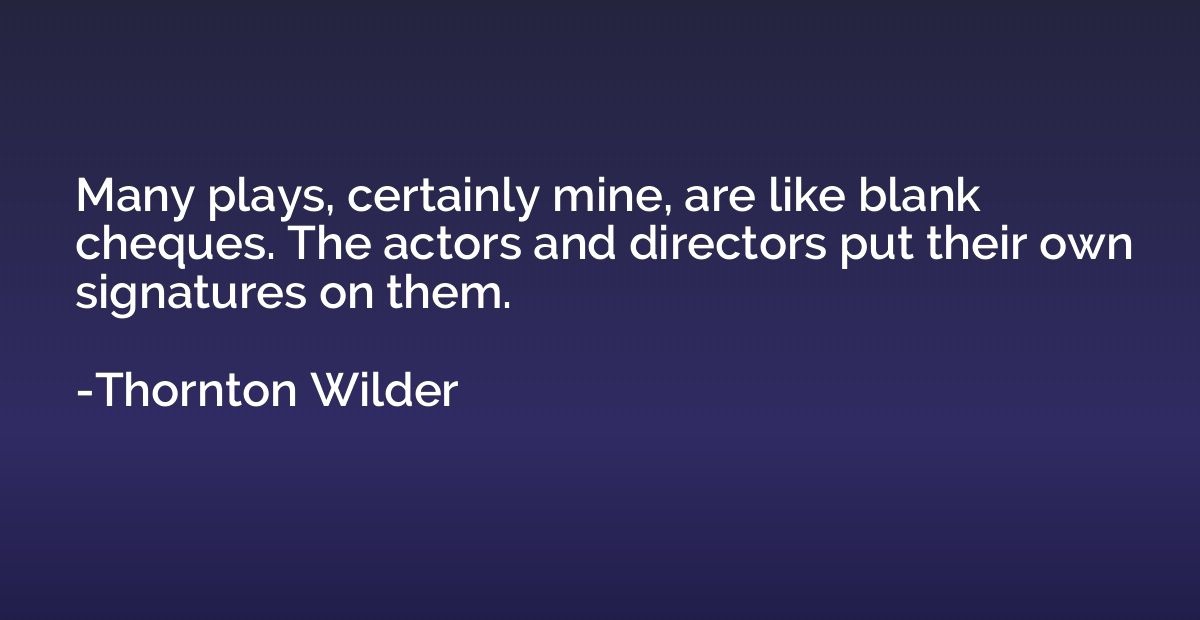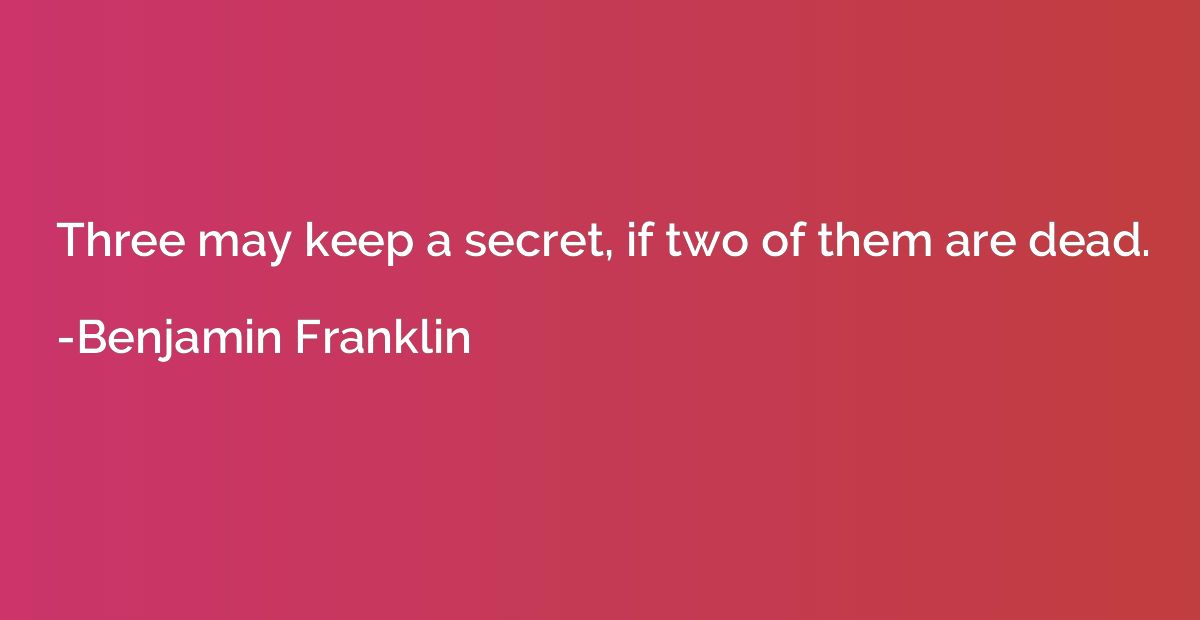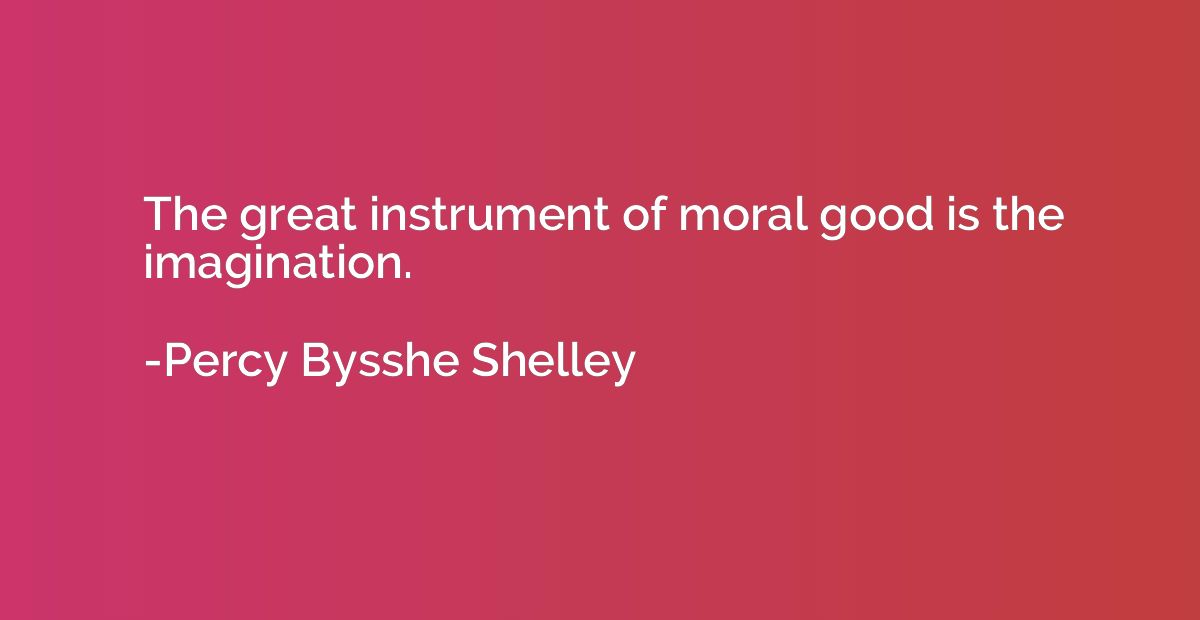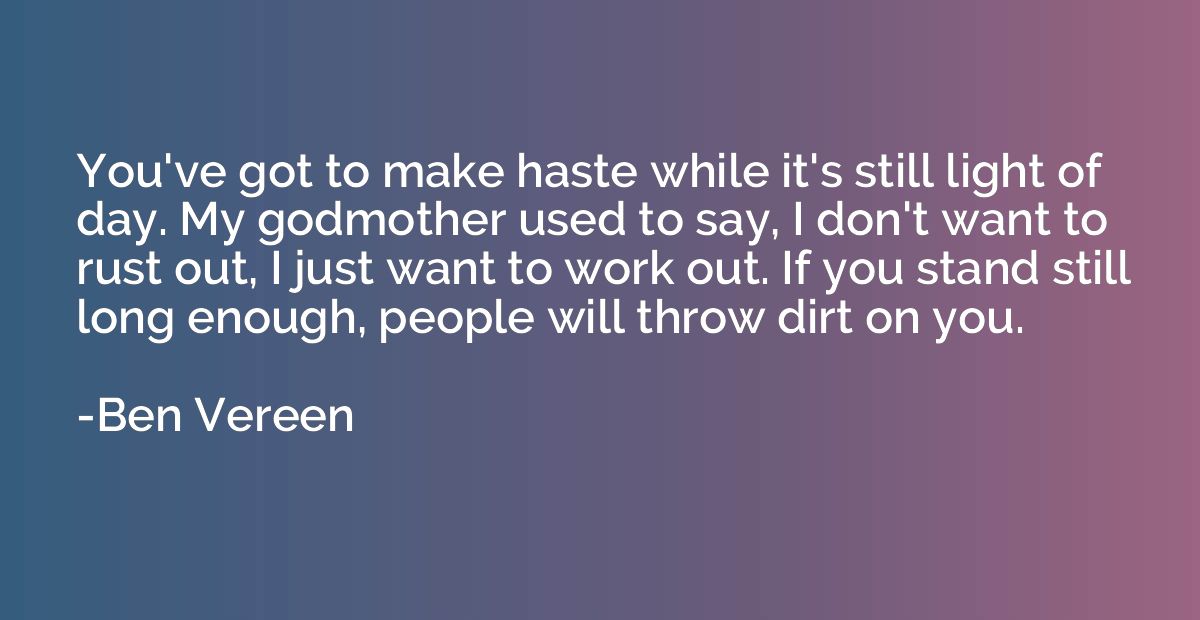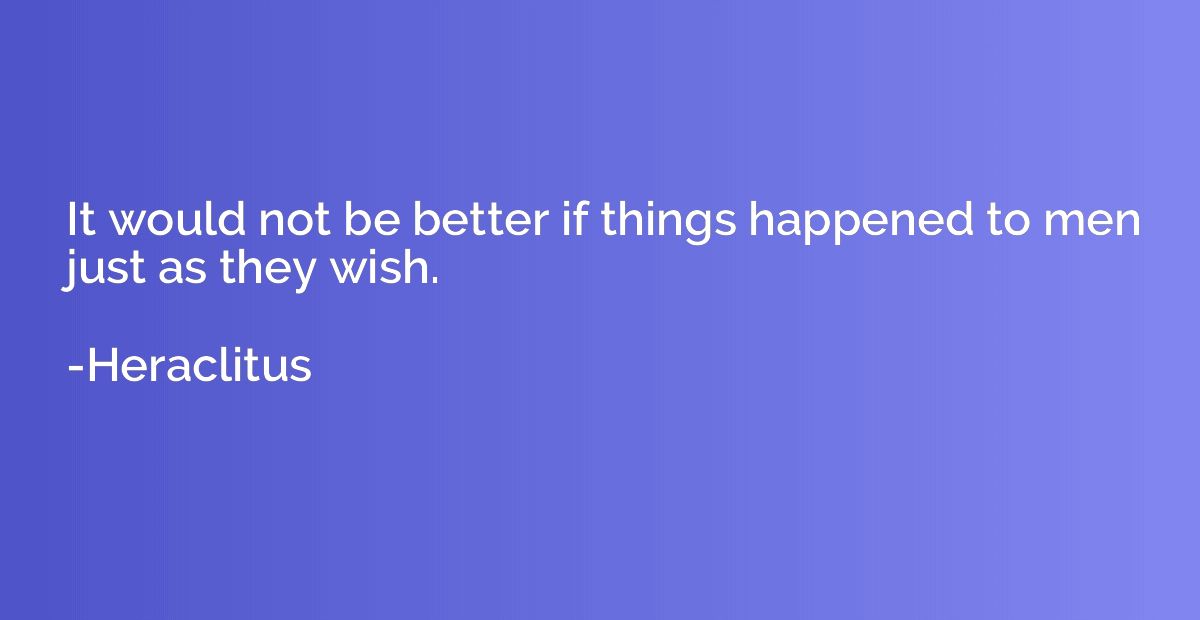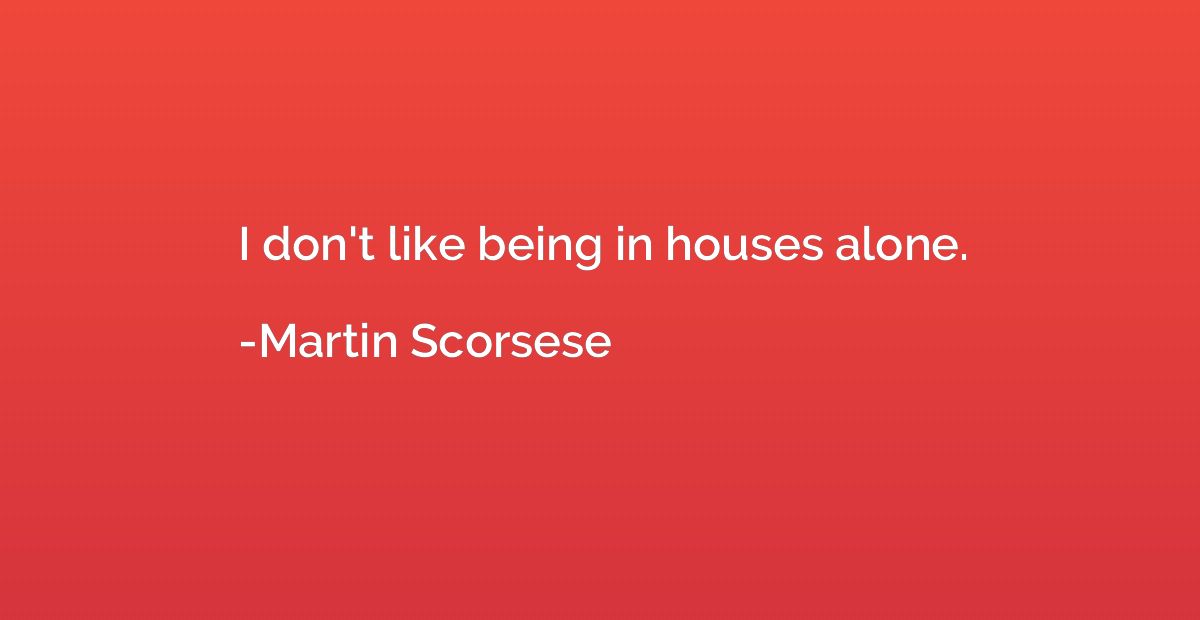Quote by Norman Cousins
Like a celestial chaperon, the placebo leads us through the uncharted passageways of mind and gives us a greater sense of infinity than if we were to spend all our days with our eyes hypnotically glued to the giant telescope at Mt. Palomar. What we see ultimately is that the placebo isn't really necessary and that the mind can carry out its difficult and wondrous missions unprompted by little pills. The placebo is only a tangible object made essential in an age that feels uncomfortable with intangibles, an age that prefers to think that every inner effect must have an outer cause. Since it has size and shape and can be hand-held, the placebo satisfies the contemporary craving for visible mechanisms and visible answers . The placebo, then, is an emissary between the will to live and the body.
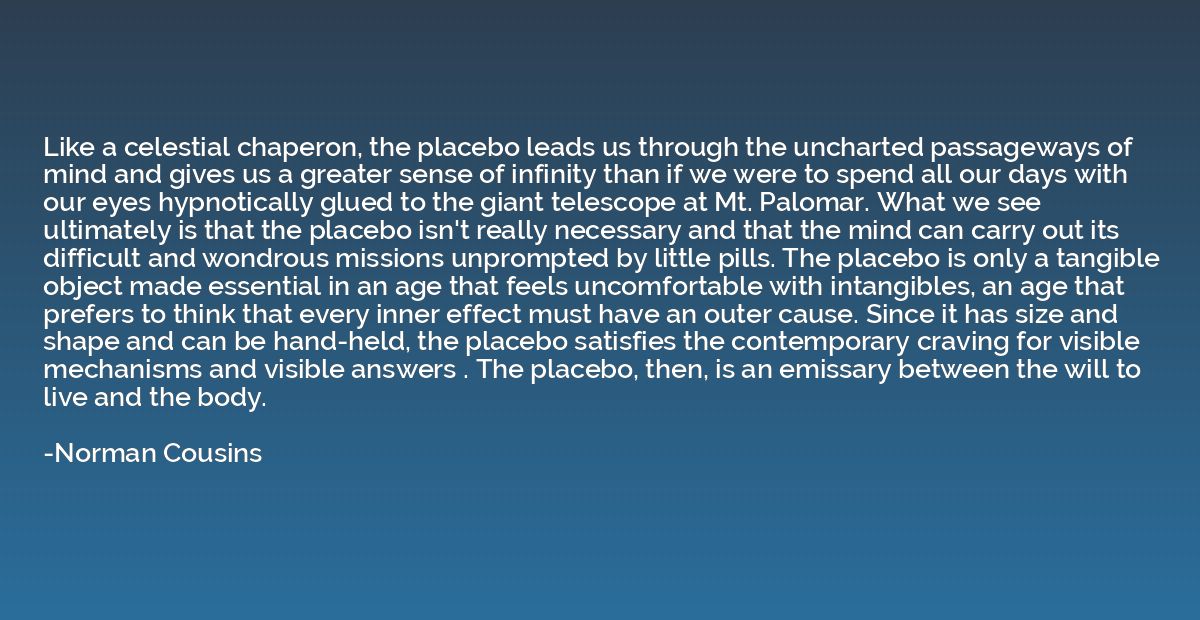
Summary
This quote suggests that the placebo, though it may seem like a tangible object, serves as a guide that leads us beyond the limitations of our mind. It allows us to experience a sense of infinity and explore the uncharted territories of our consciousness. The quote also asserts that the placebo is not truly necessary, as the mind is capable of carrying out its extraordinary functions without external substances. Rather, the placebo satisfies our desire for visible explanations in an age that prefers material causes. Therefore, the placebo acts as a bridge between our will to live and the physical body.




